Time reading skills Extra Challenge Time Worksheets for 6-Year-Olds
5 filtered results
-
From - To
Enhance your child's time-reading skills with our Extra Challenge Time Worksheets for 6-Year-Olds! Designed to make learning engaging and fun, these worksheets provide a variety of exercises that will help kids grasp the concept of telling time on analog and digital clocks. Through colorful illustrations and interactive activities, your young learner will practice identifying times, understanding time intervals, and solving engaging time-related problems. Perfect for reinforcing classroom learning or for at-home practice, these worksheets are an excellent resource to boost confidence and competence in managing time. Start your child’s journey to becoming a time genius today!
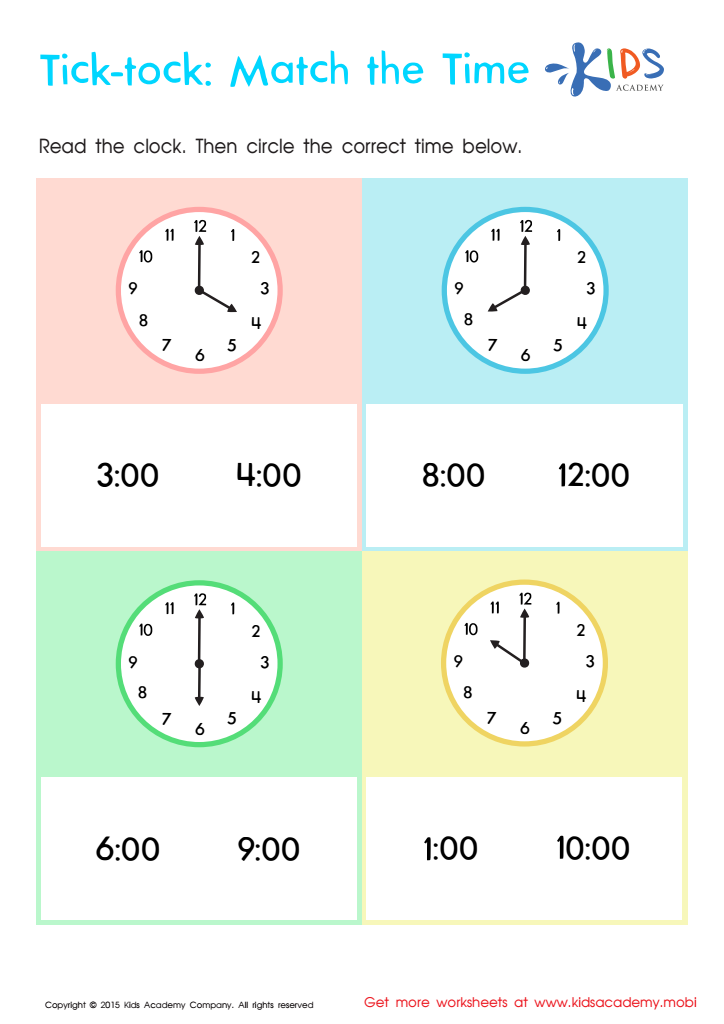

Telling The Time Worksheet: Part 4
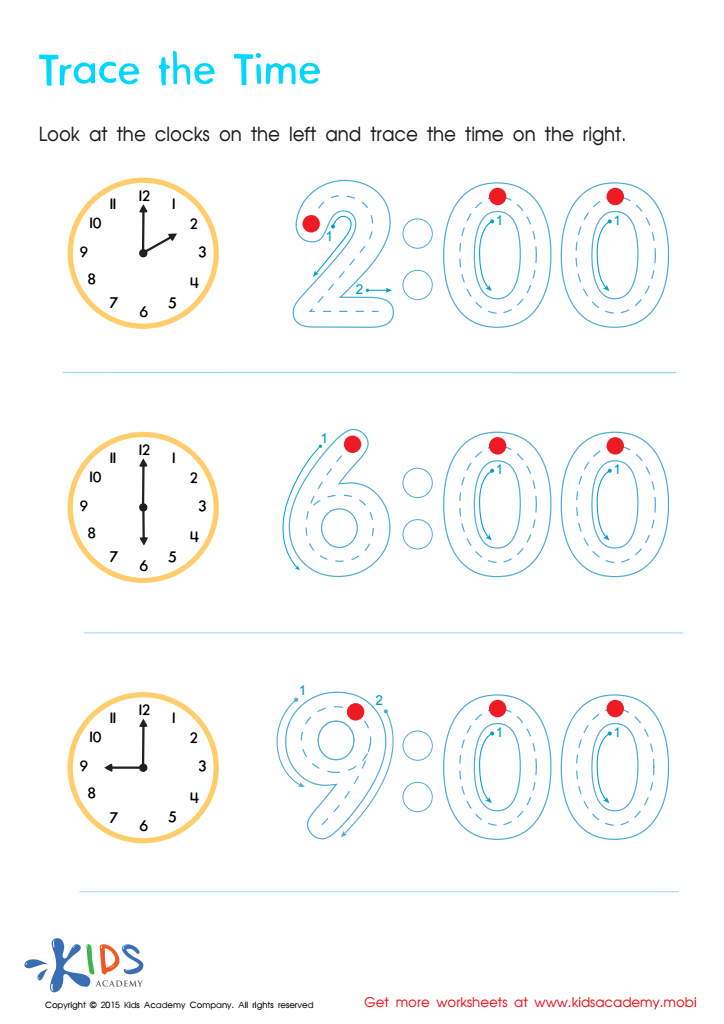

Telling The Time Worksheet: Part 2
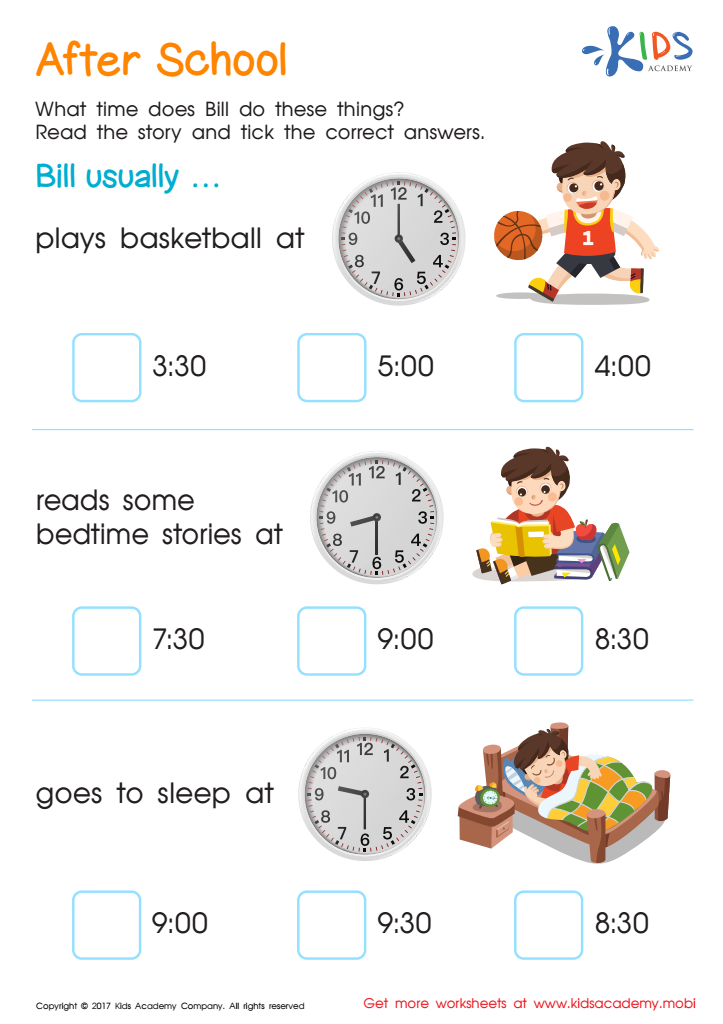

After School Time Printable
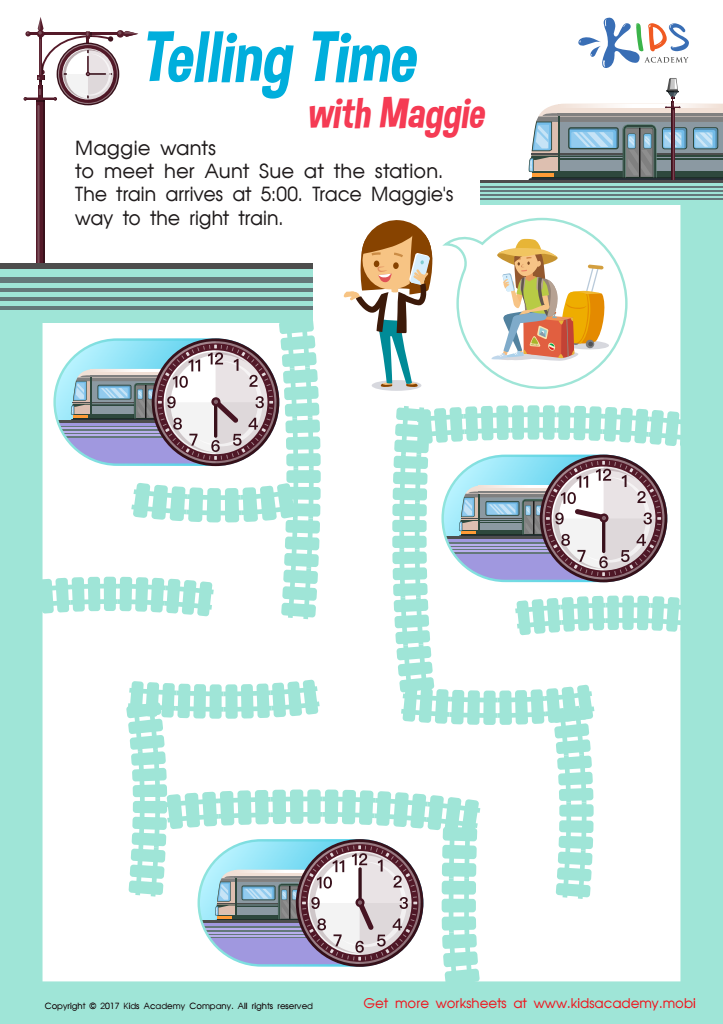

Telling Time With Maggie Time Worksheet
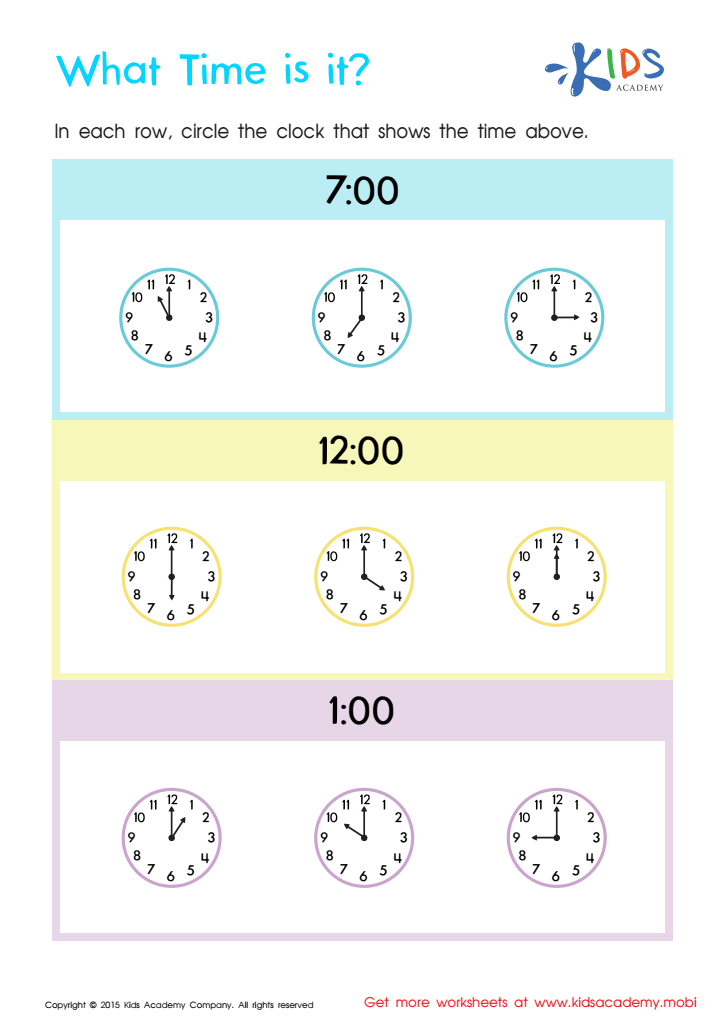

Telling The Time Worksheet: Part 3
Parents and teachers should prioritize developing reading skills, especially at the age of 6, as this foundation significantly impacts a child's future academic success and confidence. Reading is not just about decoding words; it encompasses comprehension, vocabulary development, and critical thinking. Six-year-olds are at a pivotal stage where their neural pathways are rapidly forming, making it an ideal time for rigorous practice in reading.
In terms of "Time Reading Skills Extra Challenge,” engaging children with time-specific reading activities can enhance their ability to read fluently under pressure. This approach bolsters their comprehension skills and encourages a love for reading through interactive learning. Parents and teachers can incorporate games, timed reading exercises, or stories that require quick thinking, making reading fun and engaging.
Moreover, fostering literacy skills contributes to a child’s emotional and social development. Children who read well often develop better communication skills, improved focus, and increased self-esteem. Ultimately, supporting reading skills at this early age lays the groundwork for lifelong learning, curiosity, and academic resilience, preparing children not just for school but for a successful future. Prioritizing these skills leads to well-rounded, confident, and capable learners.
 Assign to My Students
Assign to My Students


















